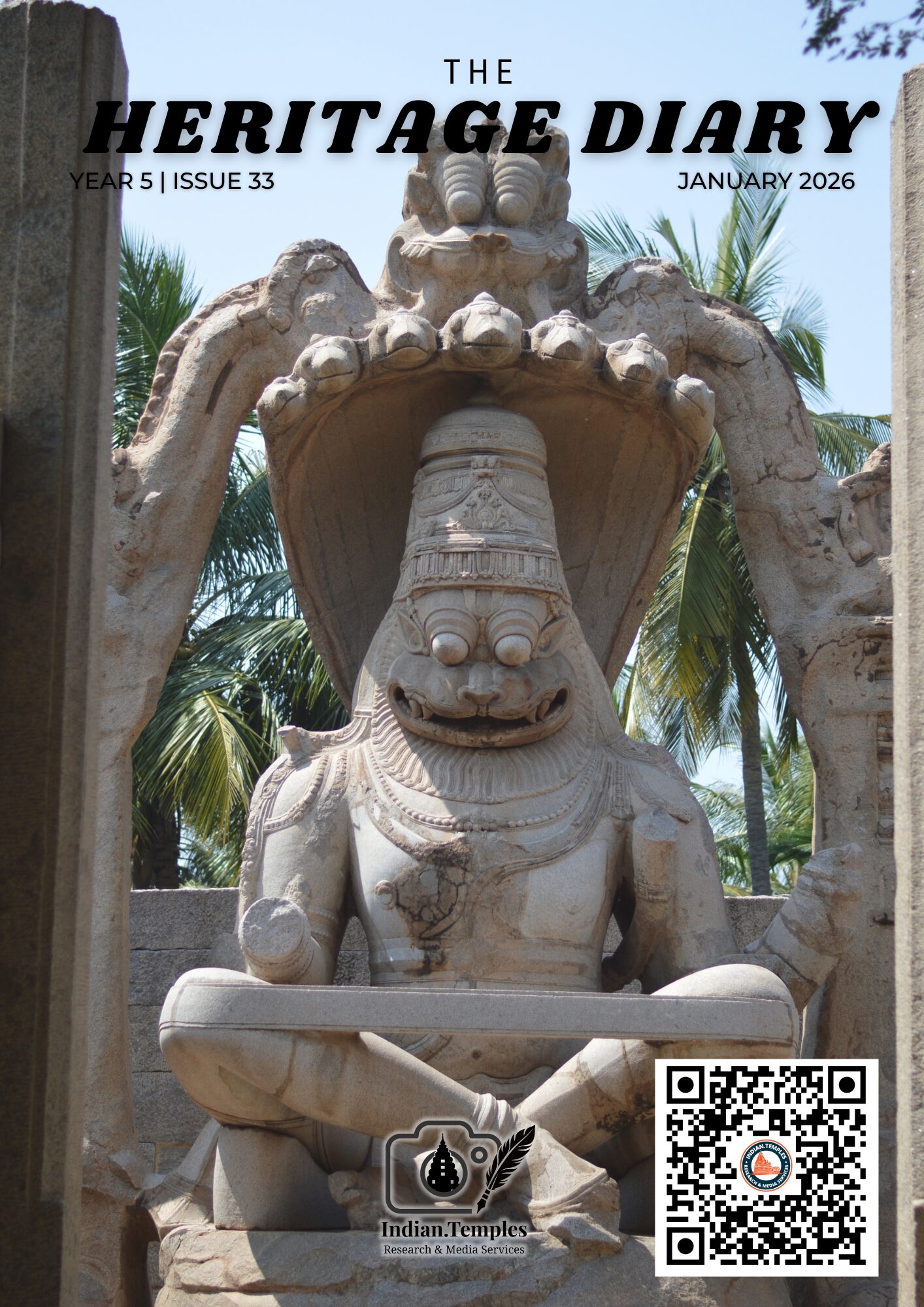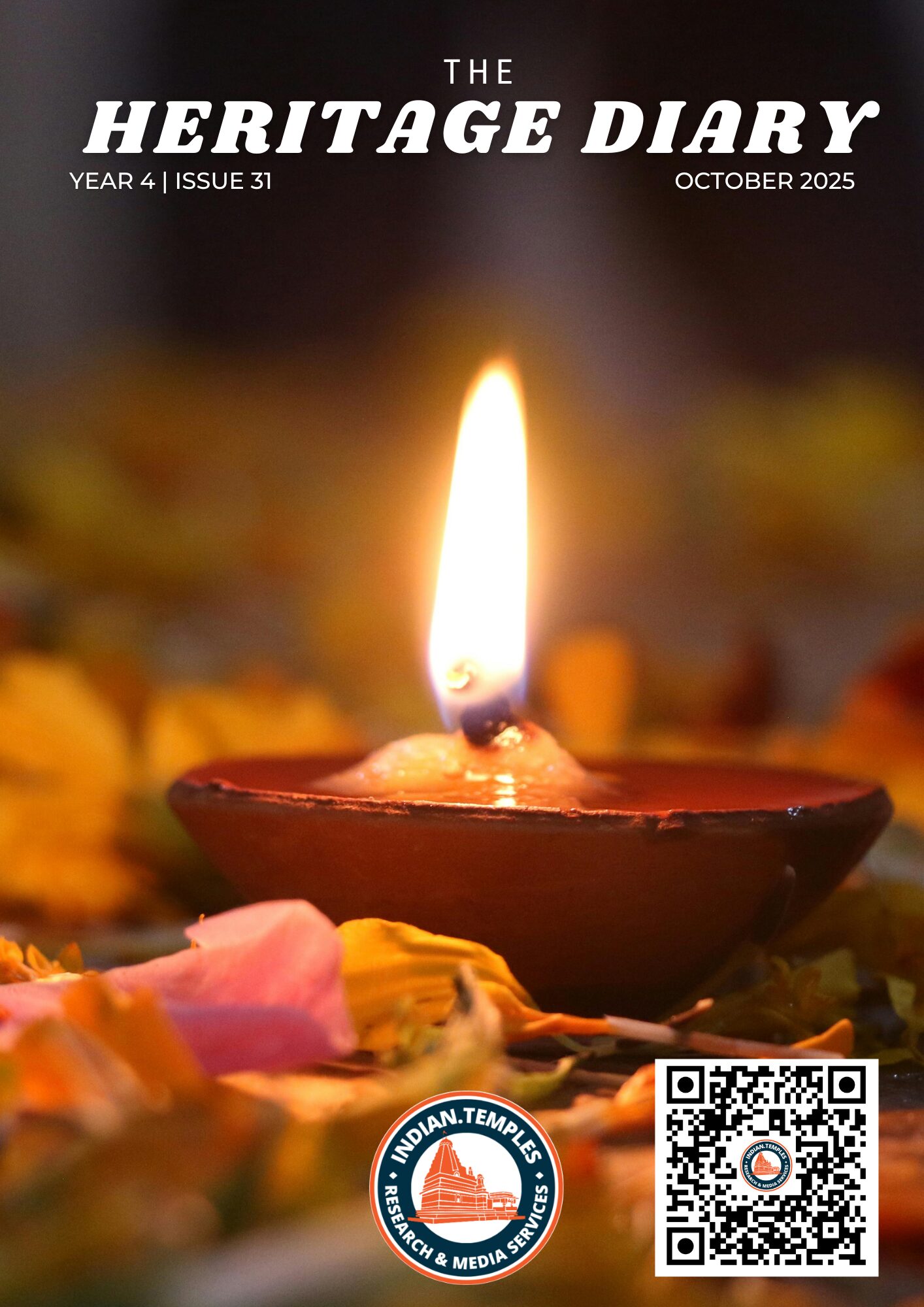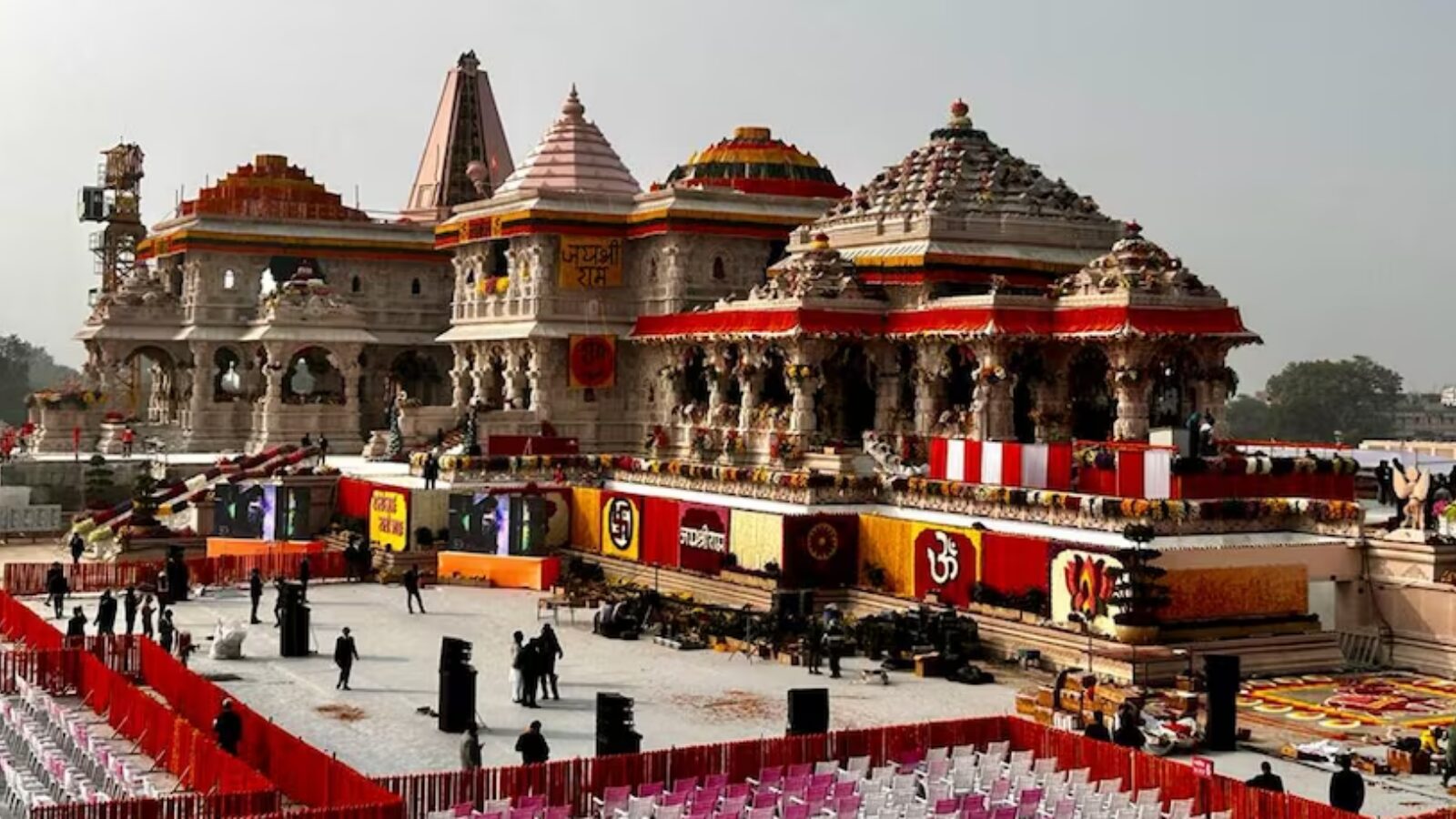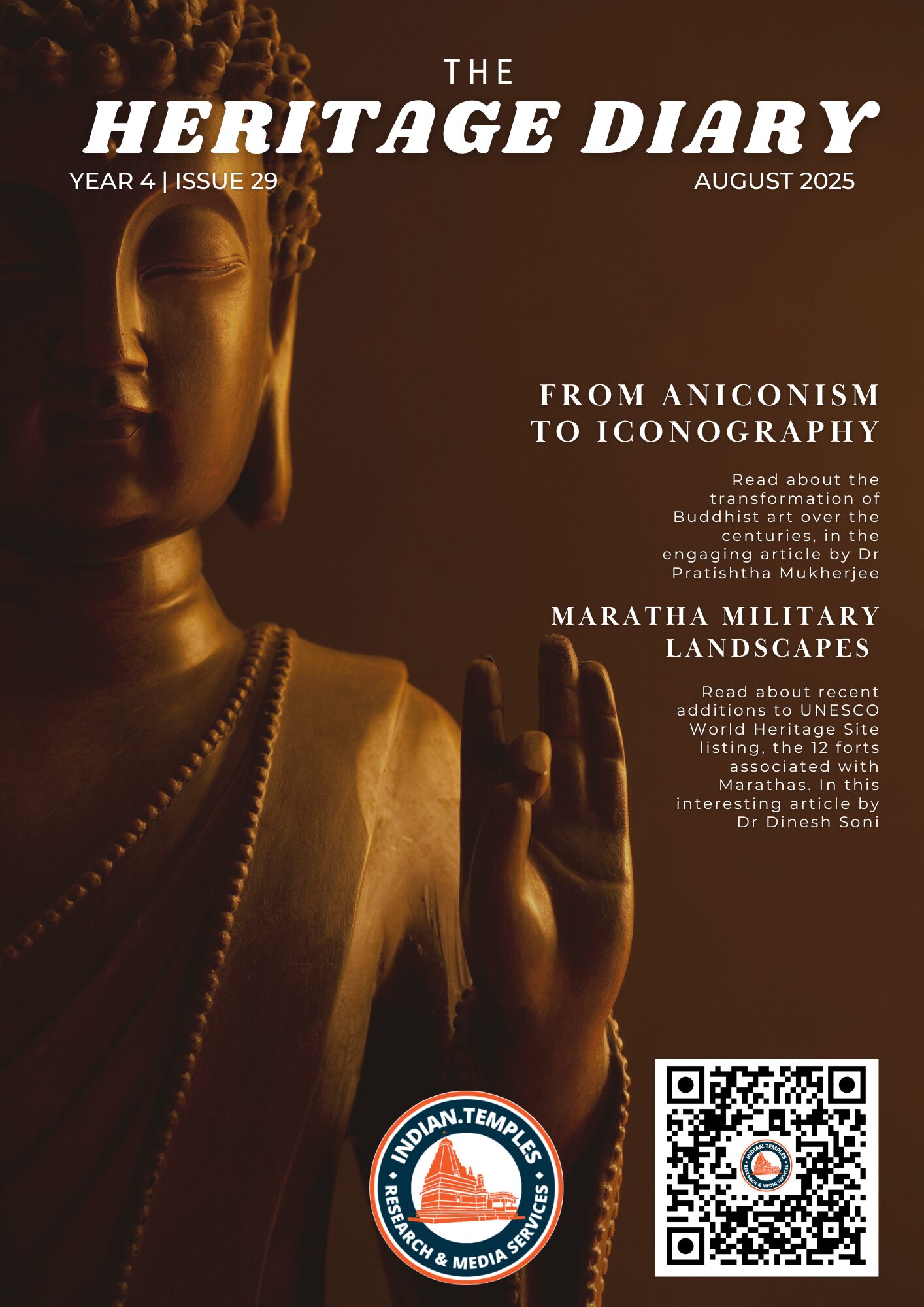Validation is the act of making someone realise that he/she is important and deserves respect. Or in some cases, it is the process of accepting the authority of someone. Is the validation really necessary? Does everyone not understand his / her own worth? Is validation a component of Self-worth ? or is it just another management jargon ?

Ramayana has a well-known anecdote. When Rama came to know that Sita was taken to Lanka by Ravana, discussions started about how to reach Lanka to check on Sita. All vanaras started to express their capacity to jump over the sea. Everyone was telling about how much distance they can cover in one jump. While everyone is providing their performance predictions, Hanuman was particularly silent.
Jambavan, at this point, asks Hanuman the reason for his silence. Hanuman says with a confused face “I can’t seem to remember how much distance I can cover in one jump. My brain goes completely blank when I think of this”. Jambavan realised that it is time to make Hanuman aware of the boons he had received as a child; and tell him about the immense power he possesses. Jambavan praises Hanuman and compares his power with that of Garuda. And he tells him about the boons he had received from different deities when he was a newborn.
Hanuman always possessed these powers. But curse from a sage had made him forget the powers. As a child, he was very mischievous and would often use his powers to trouble others. This had led the sage to get angry and curse him. But when the time was right, the wise Jambavan reminded him of his powers.
We all are like Hanuman. The one who has a lot of skillsets, but unaware of them. We all need one Jambavan to remind us of the skills we possess. And a good leader has to perform this duty of Jambavan.
Is validation really required though? Does someone else has to remind us, about our own skillsets? Singing hymns of devotion like Bhajan and Arti is an important part of our worship rituals. Any Bhajan or Arti is basically a way of singing praises to the deity. Before we ask for anything from God, we need to first praise the deity. If you read Hanuman Chalisa, Tulsidasji ask for something from Hanuman in the 37th verse. For 36 verses, he praises Hanuman and in verse number 38 to 40; he asks something from Hanuman.
Why do we have this tradition of praising Gods? It may just be a way to make us aware of powers and qualities of deity. But it also teaches us an important lesson. If we want something done from someone, we first need to appreciate that person. This could be one way of validating their supremacy. Just the way we acknowledge supremacy of the deity through Bhajan or Arti, we also need to do the same in case of our employees, stakeholders or companions.
What is validation? We all know the definition. But what are the components of it? What is the right way to validate someone’s expertise of supremacy? With my limited knowledge and understanding, I put forward three steps that would constitute a proper validation of the skills.
Acknowledge and Appreciate
The very first step in validation has to be the ability to identify talent. The guys in Human Resources would tell us multiple techniques of talent identification and talent acquisition. However, at multiple instances, we come across multiple other talents of a person after he becomes part of the organisation. A good leader has to always be on a lookout for the untapped potential and unidentified talent. Cause when this hidden talent is explored, only then the person would feel empowered to give better efforts for the organisation.
The corporate world has the system of performance based rewards for this very purpose. The social organisations also need to work on this part. Especially in voluntary organisations, where every member is providing his/her time and energy without any obligation to do so; one must ensure that the member is appreciated for it. Just the way we appreciate our deities when they offer us good things without any obligation to do so.
We are often occupied with the quest to be seen by others. We focus more on making ourselves attractive (in looks as well as in work). But more than often, we miss out on seeing others than ourselves.

For humans, the forest is a frightening place to be at, especially in night. But yet, according to the Bhagvat Purana, Raas Lila happens in the forests outside Vrindavan, at night. Krishna plays the flute and all Gopis gather around him for the dance. Krishna is no one’s lover or father or brother. Yet, every Gopi seeks his company. This is because Krishna makes them feel safe with his behavior and love towards everyone. In life, every human likes to feel safe. They like someone to acknowledge and validate them, instead of being judged.
Utilise
A talent is of no use, unless it is utilised in the right way, at the right time, for the right cause. Just acknowledging and appreciating a talent is of no use, unless we can’t utilise it for the betterment of the organisation and society.
In Ramayana, Hanuman plays a very crucial role at every step. Yet, he never holds any important position. After the Lanka war and after Ram gets back to Ayodhya, Hanuman visits his mother Anjani in Kishkindha. He narrates the whole incident to Anjani. This, is believed to be the first ever recital of Ramkatha. However, when Anjani hears everything, she is not much pleased. She asks Hanuman, “Ram did not have to go through all the troubles of killing Ravana in order to rescue Sita. You had so may powers, you could just have rescued Sita and brought her back when you went to Lanka in search of her. Why didn’t you do that?” To this, Hanuman answers “Because Ram did not ask me to”. This, some may call as a missed opportunity. Ram knew about powers of Hanuman. Jambavan had made him aware of that. Yet, he did not use the opportunity. Of course, there would be many justifications for this act of Ram. Maybe he wanted to teach a lesson to Ravana; maybe he wanted to teach him and everyone the concept of consequences for action. Maybe he did not want to be seen as the one who could not fight a battle to rescue his abducted wife. But some critics will definitely see this as a missed opportunity.
We are not as valour as Ram. We are common people, who can’t afford to miss an opportunity. The opportunity to use talent that we possess. We need to have a work culture which promotes and utilises the talent of people around us.
Improve
A talent has to be always polished and enhanced. And a talent also needs to be improved with training in the complimentary fields.
Shiva is self-contained. He possesses all the knowledge of the world, and hence, he has no desire to open his eyes. He is focused on the thoughts within and is not concerned about the world around. Gauri forces him to open his eyes, because she has some doubts that only Shiva can answer. When Shiva answers her questions, he sees the world around. And he realises that there are things that he did not notice. He acknowledges the fear that prevents a knowledgeable one from sharing his knowledge. This creates a feeling of empathy in him.
He may continue to keep his eyes shut, but that won’t teach him empathy. One needs to have open eyes and improve what we already possess. Only then, we will be better version of ourselves.
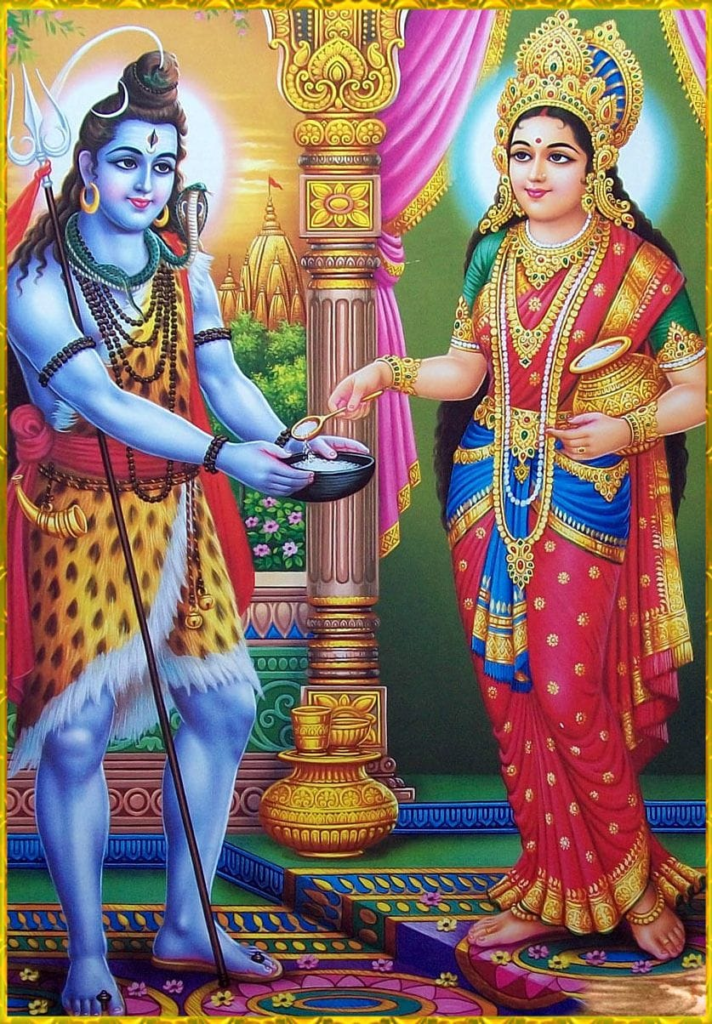
There is a legend associated with Annapurna. One day, the god Shiva and his consort Parvati got into an argument about the material world. Shiva said that everything materialistic was just an illusion, including the food that the humans ate. This infuriated Parvati, who governs materialistic aspects. To show Shiva and the world her importance, she disappeared, saying that she wanted to see how the world would survive without her.
With Parvati’s disappearance, the world was deprived of food, and there occurred a famine. Shiva’s followers begged him for food; even the Gods were forced to beg for food, but could not find any food. Finally, Shiva and his followers realised that there was only one kitchen on earth, in the city of Kashi, where food was still available.
Shiva went to Kashi to beg for food. To his surprise, the kitchen was owned by his wife Parvati, but in the form of Annapurna. She wore celestial purple and brown garments, which were lightly adorned with ornaments. She was seated on a throne, serving and distributed food to the starving gods and hungry inhabitants of the earth. Annapurna offered her food as alms to Shiva and made him realize that as Brahman, Shiva might have outgrown hunger; but his followers had not.
The expanded worldview helps Shiva develop empathy and be a better version of himself.
In Mahabharata, Arjuna loses his nerve. He suddenly realizes the enormity of the situation before him. He is about to kill his kith and kin for a piece of property. He is consumed by guilt and shame. He throws his bow down and refuses to fight. This is when Krishna reveals to him the secret of life in a song thereafter known as the Bhagavad Gita. Enlightened by the wisdom, Arjun picks up his bow and prepares to fight.
Arjuna may be greatest archer in the world. But he did not possess the right wisdom that would have made him great warrior. Krishna helps him in learning the wisdom and makes him a better warrior, than he was earlier. This underlines the significance of learning skills that compliment the skills we possess. In modern day, the leaders need to ensure that the talent is always polished and enhanced. This is the very purpose of doctos attending conferences, teachers undergoing trainings and government officers being offered alternate duties. To polish skills and keep enhancing ourselves.
One question may be asked about validation. Is it necessary to ascertain special value to everyone? Can a leader not treat everyone as equal? Let me share a folklore that is associated with very widely heard proverb “Andher Nagari Chaupat Raja”.
There was a city named Andher nagari (literally meaning the dark city). One man walks in the city and realises that every item is priced equally in the city. A kg of vegetable is sold at one rupee and a kg of gold is also sold one rupee. The man confused with the economics, consults his teacher. The teacher warns him to leave the city immediately. But he decides to stay. One day, a thief is caught stealing gems of the king Chaupat raja (literally meaning the foolish king). The death punishment is given to thief by king. But problem arises when they try to hang him. The man is too short to reach the noose and too thin to have him hanged with the rope. The king orders to find a man who is fat and tall enough for the punishment. The man, who was advised to leave town by his teacher, gets caught by the soldiers. He pleads that he hasn’t stolen anything. But he is said that someone must be punished for the crime. And because everyone is equal in the city, anyone can be punished. The man realises the words of his teacher “Where vegetable and gold is treated equally, a guilty and innocent will also be treated equally.”
The concept of equality does not exist in a society where everyone has unique talent. Every talent needs to be identified, acknowledged, appreciated and utilised in a unique way suitable for the talent. That makes the society and businesses flourish.



